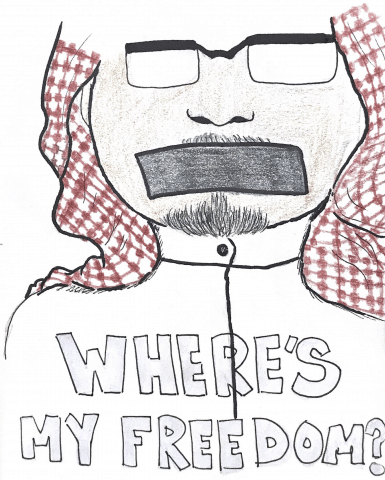Free speech and freedom of expression seem to be top-of-mind topics recently, constantly talked about online and in the media. Freedom of the press can be found within these liberties, but whether free press is being respected and protected continues to be an important concern.
The growing conversation about the legitimacy of news, the legal pursuits against journalists and the deaths of those who speak up against powerful governments should all be considered when we discuss freedom of the press. Still, there are some places in the world where individuals are found dead after they critique their government.
Jamal Khashoggi, an outspoken Saudi Arabian journalist, is one example. On Oct. 2, 2018, he entered the Saudi Arabian consulate in Turkey where he was killed. Turkish authorities claim that he was assassinated. Amnesty International is urging United Nations Secretary-General António Guterres to launch an independent investigation into Khashoggi’s death.
The Universal Declaration of Human Rights outlines the fundamental human rights that are to be universally protected and observed. Article 19 of the UDHR outlines the right of free expression.
The article illustrates that freedom of opinion and expression are rights to be protected in all forms of communication. These forms of communication include journalism, political discourse and criticism of public affairs.
The United Nations Educational, Scientific and Cultural Organization, or UNESCO, states that it is a basic human right. Freedom of the press is not simply about the freedom of journalists but about the right of the public to access information.
Freedom of expression and free press are essential components to democracies. This is why free press is entrenched in the constitutions of many democratic jurisdictions under the umbrella of free speech or freedom of expression.
In the United States, the First Amendment prohibits the act of abridging the freedom of speech or freedom of the press. While this freedom is part of the American constitution, efforts to silence or intimidate the press still exist.
Revoking CNN White House correspondent Jim Acosta’s hard pass, which allowed him to access the White House efficiently, can be seen as an action to curtail the freedom of the press. Although Acosta’s pass was returned — after a federal judge ordered the White House to do so — this action is overwhelmingly significant because nothing of the like has ever occurred before.
The Trump administration has recently established new rules for the press that could limit journalists’ questions and their ability to ask follow-up questions. This is fundamentally problematic as it infringes on the rights of journalists and the freedom of the press in the States.
In Canada, section 2(b) of the Charter of Rights and Freedoms explicitly guarantees freedom of the press. It is dealt with by Canadian courts under the umbrella of freedom of expression.
The rulings on cases involving the freedom of expression and the press are dependent on the interpretation of the word freedom itself. Various cases that went to the Supreme Court of Canada have interpreted freedom in various ways.
This issue can be found closer to home. Recently, the University of Alberta’s student newspaper, The Gateway, was served with a defamation lawsuit regarding Edmonton MP Kerry Diotte. Diotte’s lawsuit alleges that an article published by The Gateway called him as “a racist” because of his purported support for Faith Goldy, a controversial far-right candidate for Toronto’s mayor.
In response to the lawsuit, The Gateway retracted the statement from their articles, apologized and added an editor’s note to the articles in question. Canadian University Press, an organization for post-secondary student newspapers, stated that the actions taken were an appropriate solution.
However, Diotte continues to pursue legal action because The Gateway did not fully retract their articles. According to CUP, the lawsuits that Diotte has served against The Gateway and four of the individuals involved could be considered examples of strategic lawsuits against public participation, or SLAPP. SLAPP lawsuits are categorized as lawsuits that seek to intimidate and silence critics by burdening them with legal costs.
Free press is important for everyone, but it is perhaps especially crucial for students. The voices of our generation can be propelled forward using the platform that student journalism provides. If free press is jeopardized, all those who lack power will find their freedom of speech threatened.
—
Aqsa Hussain
Graphic: Yashica Bither
Leave a Reply